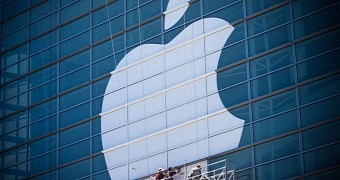The most recent rumor in the Apple world suggests the Cupertino-based tech giant is currently working on its very own concept of universal apps, which would technically allow the same app to work on more than just one device.
If the idea sounds familiar, it’s because Microsoft tried something similar back in the days when Windows phones were still around.
What Microsoft wanted to do from the very beginning was very simple. An app that was supposed to run on Windows 10 PCs should have offered support for Windows 10 Mobile devices and the other way around, eventually building a strong ecosystem that would have encouraged users to stick with Windows both at the office and on the go.
The software firm originally pushed hard for this concept, but the project gradually lost traction, especially because Windows 10 Mobile itself wasn’t entirely a mature platform.
Microsoft released updates at a rather slow pace and the first versions, like the original release of Windows 10 Mobile that shipped on the Lumia 950 XL in October 2015, was slow, buggy, and unrefined. Improvements were published every now and then, and as if the userbase wasn’t small enough at that time, more and more users decided to migrate to Android or iOS.
Eventually, developers did the same thing, focusing all their efforts on the platforms that were bringing home the bacon. And without developers, a concept like universal apps simply cannot succeed.
This is why Apple has a chance to make this idea successful. The App Store alone is generating millions of dollars every year for developers, so it’s no surprise that app makers rush to create iOS apps. Not a long time ago, Apple revealed that it paid no less than $120 billion to developers.
Apple’s universal push is very likely based on the same recipe as Microsoft’s. Technically, iOS and macOS apps should share the same code, so they would be able to run on all devices, including iPhones, iPads, and Macs. By doing this, Apple can make sure its customers are even more committed to its ecosystem, so the chances of someone with an iPhone to buy a Mac would be significantly increased.
Just like Microsoft, Apple needs developers to embrace its idea and create apps based on its upcoming SDK that would offer support for iOS and macOS. The bigger difference between the two is that Apple already has a large community of developers that invested in its App Stores, so it shouldn’t be too difficult to convince them to support this project. Especially when there’s such a big opportunity to generate increased sales.
Needless to say, Apple has what Microsoft lacked: developers. While the Redmond-based software giant insisted so aggressively for developers to create universal Windows apps, this never happened. And it’s all because Microsoft’s “universal” apps eventually came down to Windows 10 PCs alone. In its turn, this was caused by the lack of a powerful mobile ecosystem.
Again, this is where Apple has no reason to be worried about. The iPhone continues to remain extremely popular all over the world, despite the recent struggles caused by high prices, and macOS is still the main alternative to Windows, especially in the enterprise.
Probably the most difficult thing for Apple will be to actually convince existing users to become more committed to its hardware ecosystem.
With Apple products getting more and more expensive, the chances for someone who spent more than $1,000 on an iPhone to invest several more thousands of dollars on a Mac are pretty small right now, so Apple must find a way to increase the likelihood of this happening.
Apple’s universal apps are projected to come to fruition in 2021, so Cupertino still has a lot of time to think this through.

 14 DAY TRIAL //
14 DAY TRIAL //